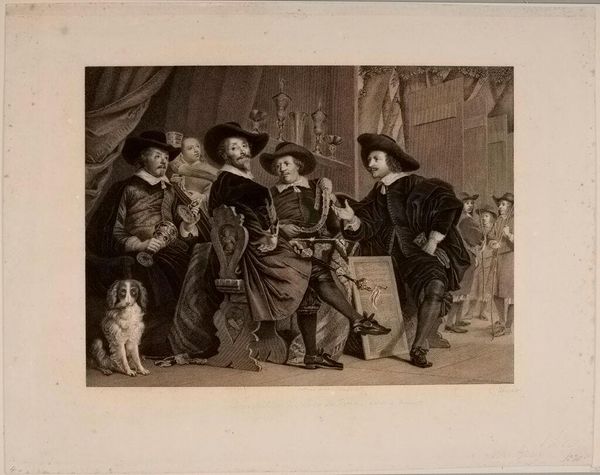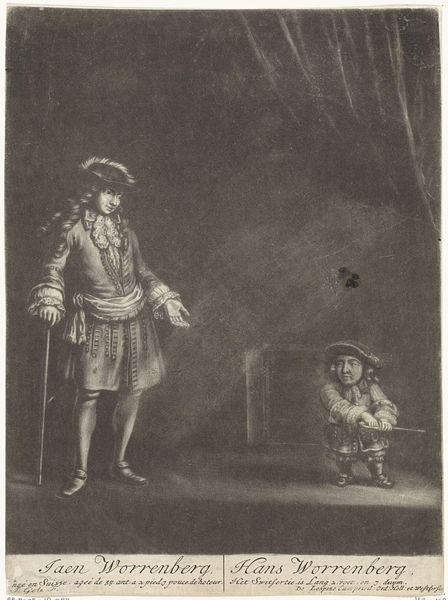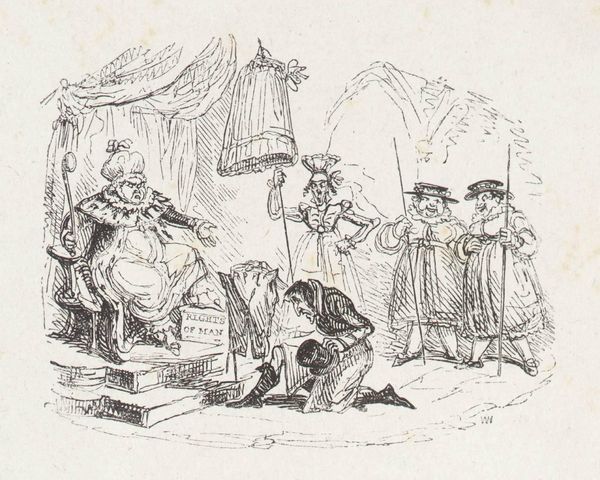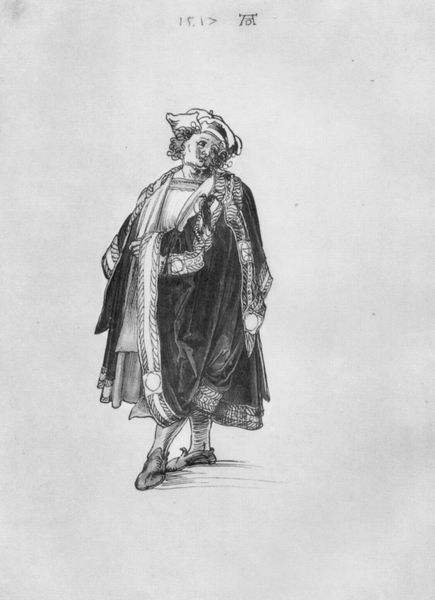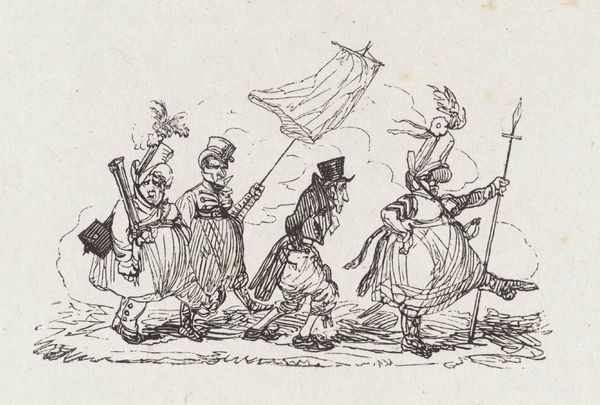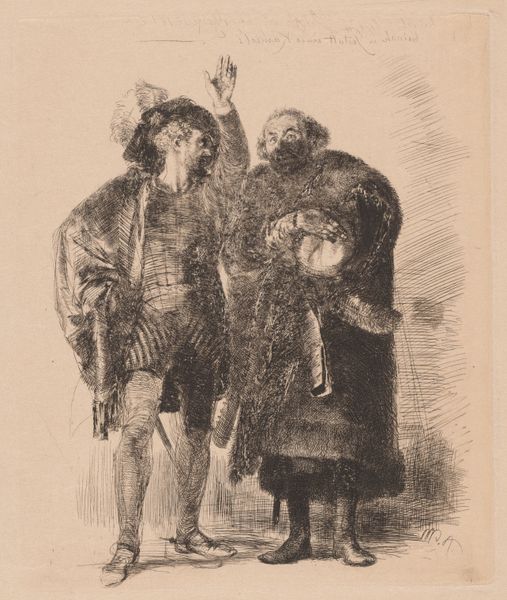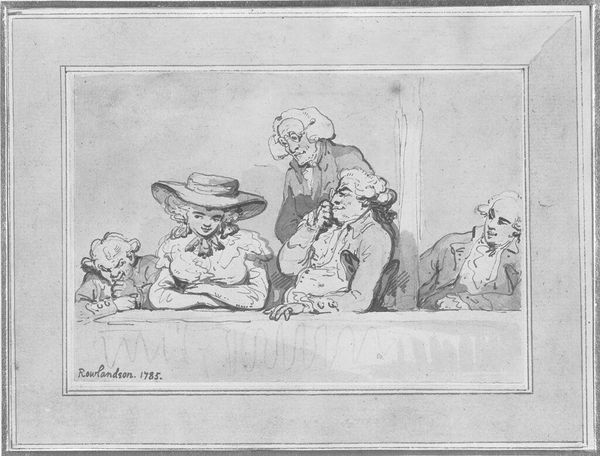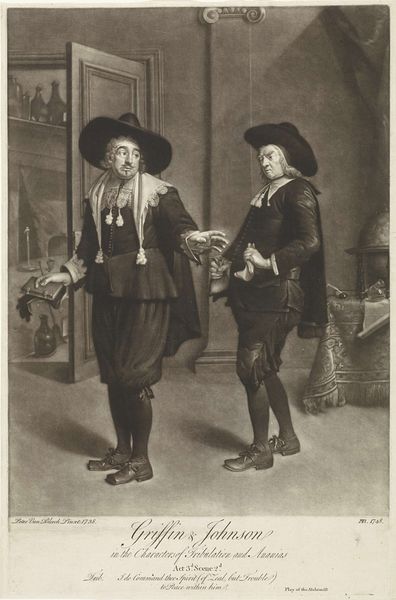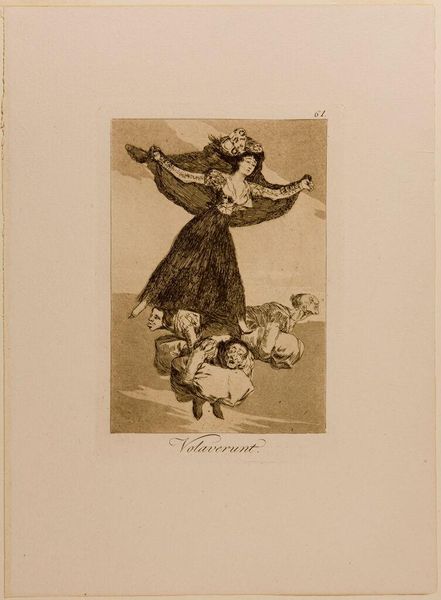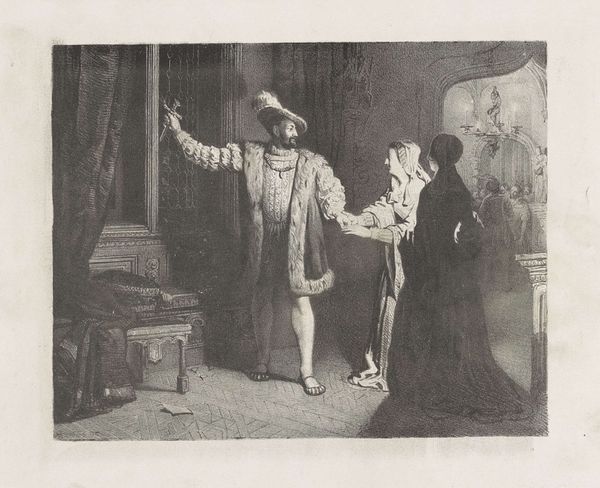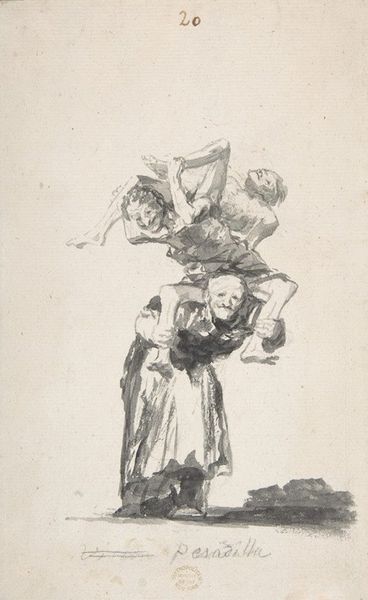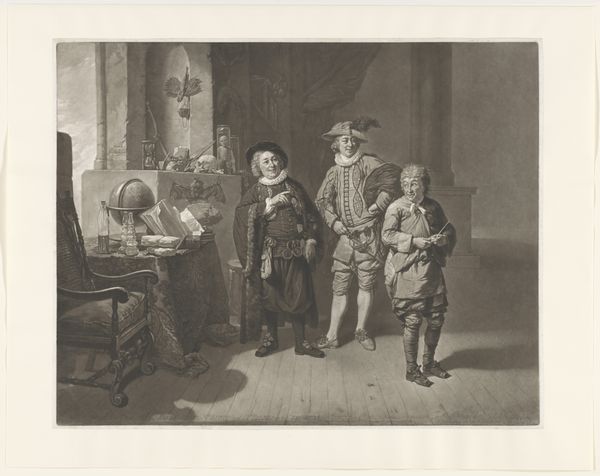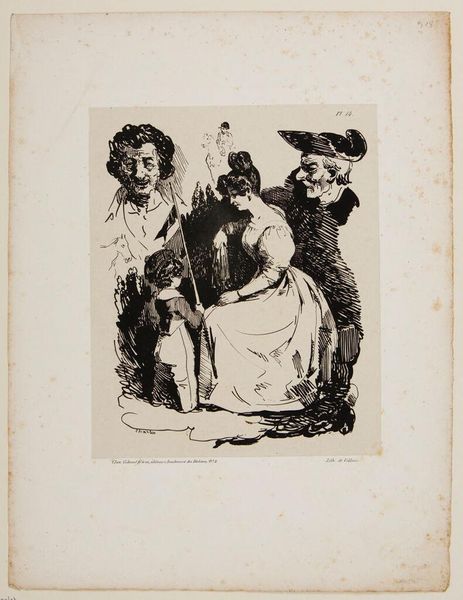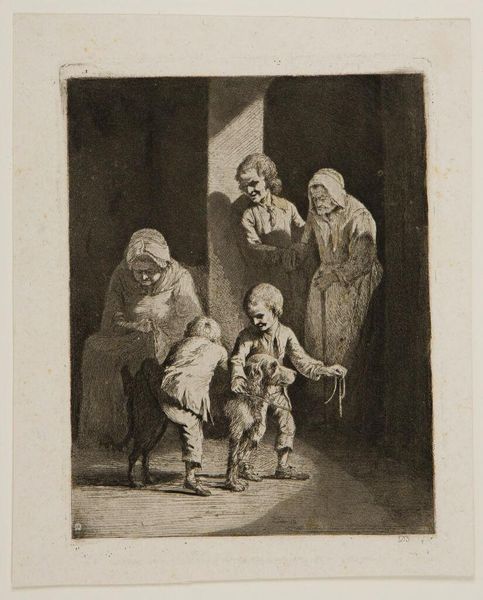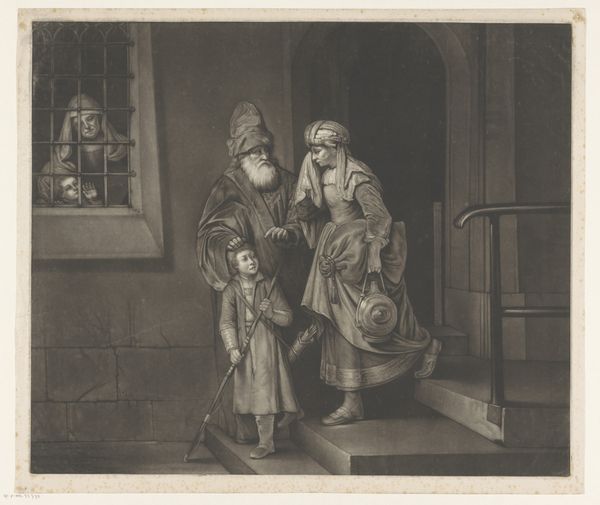
painting, oil-paint, wood
#
portrait
#
baroque
#
painting
#
oil-paint
#
monochrome photography
#
wood
#
genre-painting
#
monochrome
#
monochrome
Dimensions: 12.5 cm (height) x 17.5 cm (width) (Netto)
Curator: Let’s turn our attention to this genre painting by Jacob Duck. It’s titled "Party Scene," and it’s thought to have been created sometime between 1615 and 1677. Editor: My first impression is of hushed merriment. The monochrome palette softens everything, like a memory, slightly blurring the edges of a bustling room. It feels very intimate somehow, a peek behind closed doors. Curator: The intimacy you describe can be interpreted through the lens of class and social dynamics. Genre paintings like these provide valuable insights into the daily lives and leisure activities of specific social strata. Duck, like many of his contemporaries, captured moments of bourgeois leisure, but his work also touches on themes of social mobility and perhaps even social critique, as implied by the figures on display. Editor: Critique, huh? I see it, especially with the kind of furtive energy around the musicians at the back there. It’s like they're watching the party more than being a part of it. It's like, are they playing for their supper or really joining in the revelry? I wonder. Curator: Precisely. The gaze of those figures suggests a subtle power dynamic at play. Art historians have noted that Dutch genre painting often reflects on themes of moral virtue and vice, and these dynamics invite the viewer to critically assess the social values being represented. How do individuals interact within this enclosed space, and what power structures shape their interactions? Those questions resonate, especially when viewed through modern socio-political theories that touch on status and privilege. Editor: The monochrome is intriguing, though. Almost like the painter himself isn't quite "there" in the scene, peering in, making light and shadow his instrument. Makes me want to hear the music, you know? Smell the wine. Maybe this is about something other than privilege or some critique. Or maybe... both? I just can’t get past its hushed, reflective vibe. Curator: A dialectic. Yes, it encourages that level of open discourse and is part of what continues to keep art and society entwined in a feedback loop of critique and creative practice. Thanks for sharing that intuitive impression; it complements the academic analysis perfectly. Editor: And thank you, as always, for bringing in those contextual perspectives, without which it’s so hard to "see" the full picture!
Comments
No comments
Be the first to comment and join the conversation on the ultimate creative platform.
